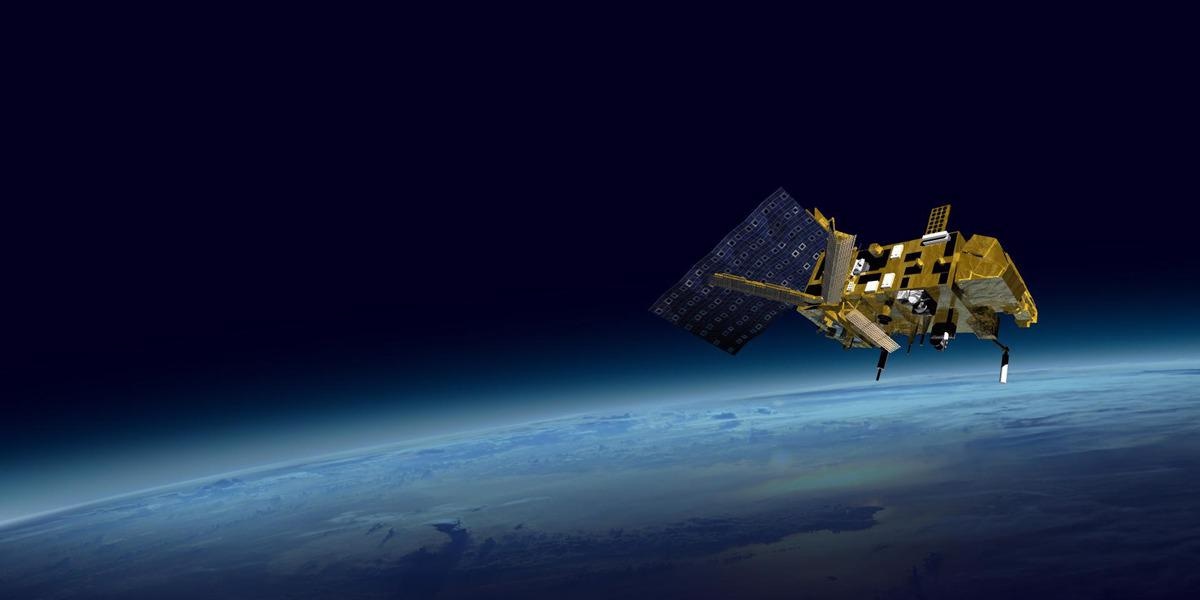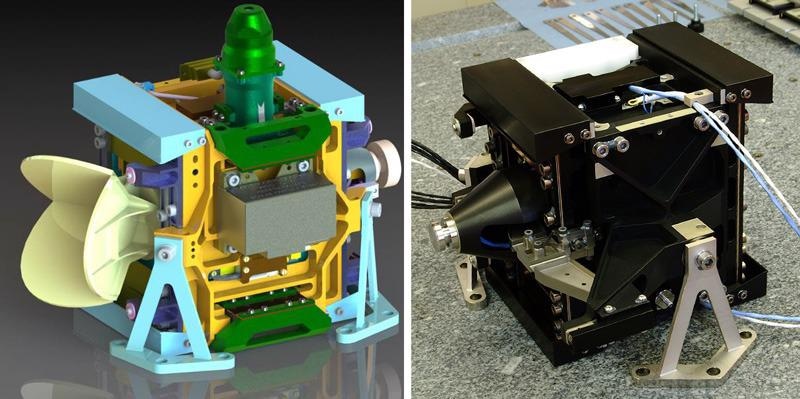From CSEMReviewed by Mychealla RiceMar 4 2022
After Performing 1.2 billion cycles during its operational lifetime, it is time to say a final goodbye to CSEM’s Corner Cube Mechanism (CCM) aboard the IASI instrument. After 15 successful years of service, the CCM has been decommissioned alongside its host, the MetOp-A weather satellite. CSEM’s tech is now set to enable a new generation of satellites.

Image Credit: CSEM
It is always a sad occasion when we have to say farewell to an old friend. Over the previous months, MetOp-A, the first of a series of meteorological satellites developed to observe climate change and improve weather forecasting, has been decommissioned. First brought to public attention in 2006, the satellite features a whole host of Swiss technologies and a very special mechanism developed by CSEM – the Corner Cube Mechanism (CCM).

Corner Cube Mechanism (CCM). Left: CAD model with mobile mirror. Right: flight model during integration. Image Credit: CSEM
This is not the first time CSEM has developed a precision instrument that is capable of battling the harsh elements of space, but it is not often we see a project come to fruition within a few decades.
Here is a quick recap as to how CSEM’s CCM has successfully helped the space community:
- Europe, on October 19, 2006, the MetOp-A meteorological satellite was launched. The MetOp mission set out to launch a series of three meteorological satellites in orbit. Jointly established by the European Space Agency (ESA) and the European Organisation for the Exploitation of Meteorological Satellites (EUMETSAT). MetOp-A was the first of three polar-orbiting satellites dedicated to operational metrology, crossing the equator at the same time each day.
- Among the instruments on board was the Infrared Atmospheric Sounding Interferometer (IASI) instrument built by Thales Alenia Space for the National Center for Space Studies (CNES). The instrument was designed to provide meteorologists with precise and high-resolution data on surface and air temperatures, as well as the composition of the Earth’s atmosphere.
- A crucial element of the high-precision IASI instrument was an optomechanical delay line, CSEM’s so-called Corner Cube Mechanism based on innovative Flexure technology.
- Thanks to CSEM’s advanced state-of-the-art know-how in Flexure elements, the CCM was designed for an infinite lifetime and is completely frictionless meaning the mechanism has operated successfully for 15 years within the MetOp-A satellite.
- Since its launch, the IASI instrument has been delivering enhanced remote sensing capabilities for meteorologists and climatologists, providing 45 billion observations in its lifetime. This information was published in the Nature Climate and Atmospheric Science journal. The data presented visualized for the first time the footprint of greenhouse gases within the Earth’s atmosphere. This information is essential for evaluating actions to combat global warming.
- While the first CCM has been decommissioned, you will be pleased to know that there are two other CCM’s currently active and in orbit around our planet aboard MetOp-B and MetOp-C, with an expected mission lifetime up to 2033.
- Following the success of the MetOp programme, Eumetsat is ready to start on its next mission, the Meteosat Third Generation (MTG) series of satellites. Expected to be launched towards the end of 2023, the MTG-S1 will once again feature CSEM’s CCM technology.
“It has been really satisfying to appreciate how the IASI instrument has become an essential tool and reference for so many meteorologists and climatologists all over the world. Knowing that we have provided an essential element of high-performance and reliable technology in that success is extremely rewarding.” – Peter Spanoudakis, Systems Senior Project Manager from CSEM.